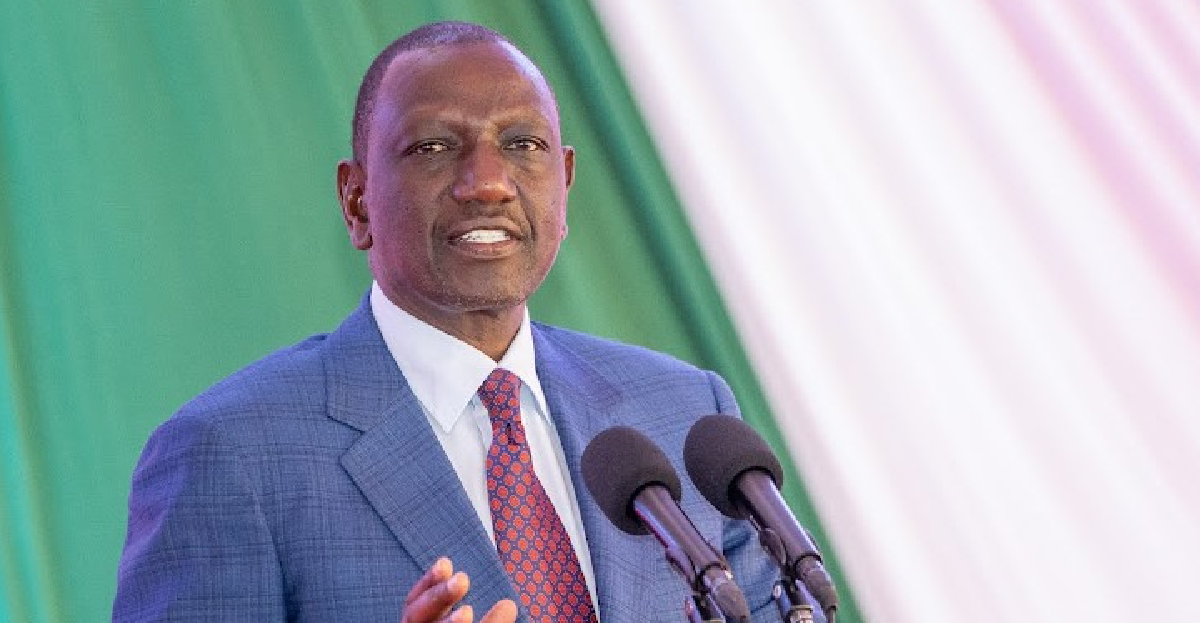Recently, Kenya made significant progress in it’s quest to become the tech giant of not only East Africa but also of the continent when it formally unveiled the Artificial Intelligence Strategy 2025 – 2030 at an event graced by the Cabinet Secretary for Information Communication Technology, Hon William Kabogo, and the Principal Secretary, Hon John Tarus.
Artificial Intelligence has been widely adopted and embraced across various sectors globally. The trailbrazing and revolutionary technology allows systems to efficiently, effectively and expeditiously perform duties and functions that were traditionally reserved for human beings.
AI was pioneered in the 1950s by Alan Turing, an English computer scientist and philosopher, who propounded the far – famed Turing Test which in layman’s terms refers to the assessment of computer systems to identify similarities between their operating systems and that of human intelligence.
Kenya is oftenly referred to as the Africa’s Silicon Savanna largely due to it’s savanna ecosystem, tremendous technological advancement and game-changing innovations and inventions.
Government has initiated numerous projects that seek to reduce digital iliteracy levels, to increase internet connectivity and to make Kenya a digital hub. Noteworthy, is the Konza Technopolis which was developed as a flagship project of the Kenya Vision 2030 which is one of our socio – economic development blueprint aimed at promoting rapid growth and development.
The Ibrahim Forum report indicates that around 58% of Kenyans have access to the internet; but unfortunately the digital literacy levels currently stands at 29%. These statistics are dismaying considering that Kenya has set a target of achieving over 80% digitization of government services within the next seven years as per the Kenya National Digital Master Plan 2022 – 2032.
The Global System for Mobile communications latest report estimates that the digital sector alone will contribute over Ksh 700 billion to Kenya’s Gross Domestic Product within the next three years.
Additionally, the digital sector is anticipated to generate over 500,000 new employment opportunities and also to increase total revenue collections by over Ksh 150 billion. It is critical to note that mobile money services alone generated Ksh 1.2 trillion to our gross domestic product and Ksh 212 billion in revenue collected by the tax man in 2023.
With the inception of Artificial Intelligence, machines are set to replace people in doing some work hence resulting to a substantial loss of job opportunities. A report released by the World Economic Forum in 2023 projected that as a result of Artificial Intelligence adoption, over 14 million employees were likely to be rendered redundant by 2027 globally.
Significantly, a report by Google estimates that Artificial Intelligence is set to contribute over Ksh 311 billion in our economy by 2030 if assimilated in all the major sectors of the economy. Similarly, the World Economic Forum projects that the adoption of Artificial Intelligence is likely to generate over 170 million new employment opportunities worldwide by the year 2030.
Therefore, it is uncontroverted that in as much as Artificial Intelligence will result to redundancies, it also presents an opportunity for the generation of millions new tech savvy jobs. Notably, over 70% of job opportunities that will be generated in Kenya from the year 2030, will require candidates to be fully acquainted with digital skills.
We have currently made significant progress in leveraging Artificial Intelligence in various sectors of the economy. In the Agriculture sector for instance, Artificial Intelligence has been incorporated in precision farming where by mobile applications like the Plant Village Nuru Application have been widely adopted by farmers to help detect crop diseases among others.
Artificial Intelligence in the Health sector is being used for patients’ data management and tracking thereby promoting protective and preventive healthcare. This innovative practice, ultimately leads to the actualization and attainment of the universal health coverage. This is in consonance with Sustainable Development Goal 3 which aims to promote good health and well being of all citizens.
Additionally, in the Fintech industry, Artificial Intelligence has been widely adopted to curb the rising cases of fraud by effectively and efficiently detecting suspicious cases promptly. Also, it is used by loan lenders to calculate the credit scores of borrowers thereby drastically reducing the probability of loan defaults.
Moreover, in Public service delivery, Artificial Intelligence is perceptible by the use of chatbots in government online platforms which has led to efficient, simplified and accessible government services , digitization of government services which has exceedingly reduced corruption and the application of data when making policies which in Kenya is spearheaded by the Kenya Institute for Public Policy Research and Analysis.
As we gear towards the full adoption of Artificial Intelligence in Kenya, it will be vital and pivotal to have a substantive policy, regulation or legislation that will guide and regulate it’s usage and application. This will inter alia avoid misuse and misapplication, prejudice, discrimination and unethical practices. Also, it will serve to protect, defend and uphold fundamental rights and freedoms encapsulated in Chapter 4 of the Constitution of Kenya 2010.
Therefore, it is indubitable and incontrovertible that Artificial Intelligence is not only revolutionary but also a game changer if adeptly leveraged. It holds enormous and vast potential to make far-reaching transformation in crucial sectors of the economy including but not limited to agriculture, health, finance, trade, manufacturing, education and transport sectors.
We must embrace Artificial Intelligence hastily, to be able to rapidly realize the Sustainable Development Goals / United Nations 2030 Agenda, the Africa Agenda 2063, the East African Community vision 2050, the Kenya Vision 2030 and the Bottom-Up Economic Transformation Agenda which is the socio – economic blueprint for the Kenya Kwanza government.
Bringing this to fruition, however, will necessitate concerted and collaborative efforts from the government, private sector, civil society, researchers, academia and the citizenry.
John Wangai is a Public Interest Litigation Advocate











